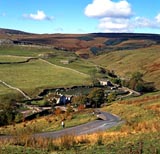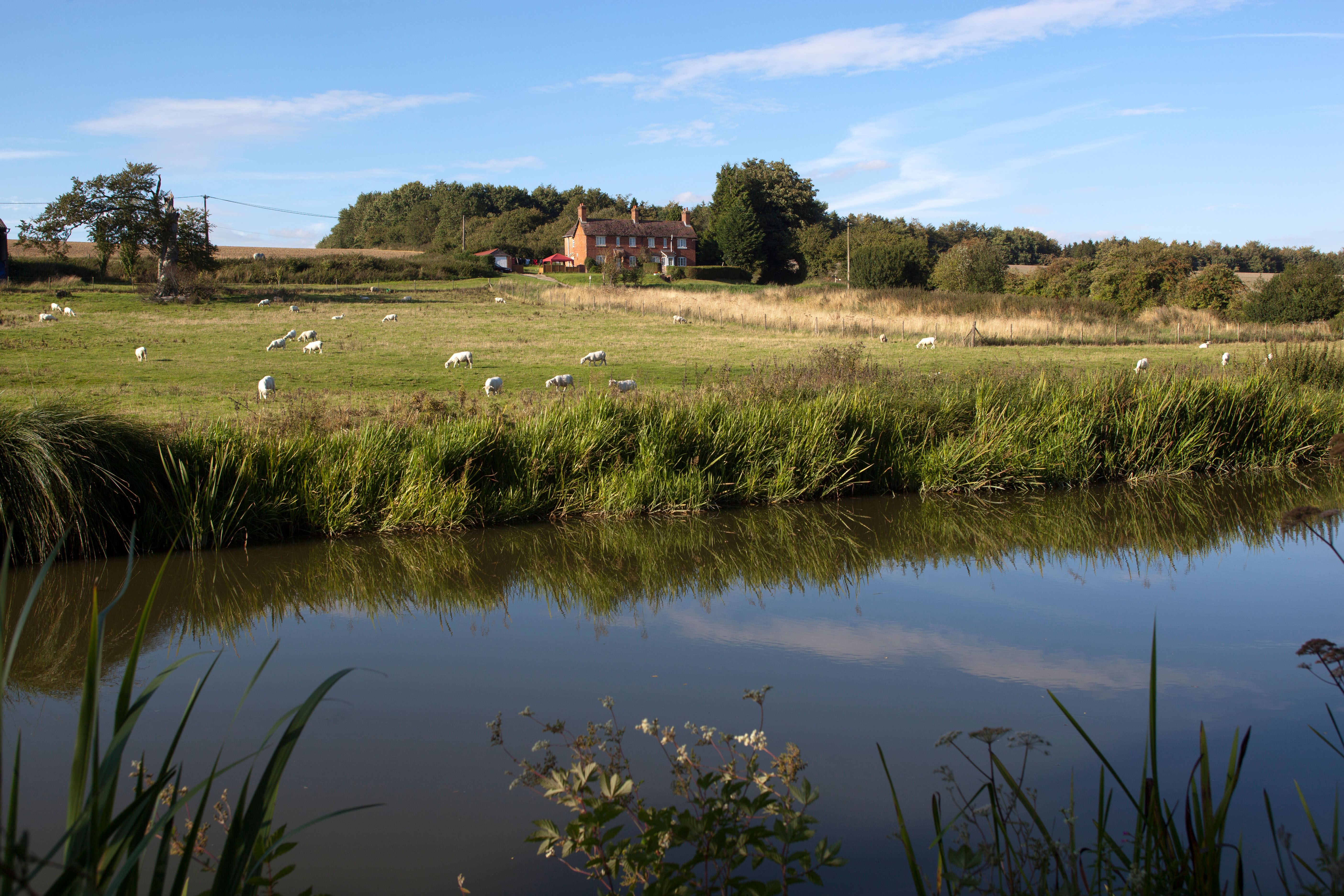Fly-tipping is blighting England and organised crime is behind it
Fly-tipping is growing in scale and affecting farmers and landowners, who have to beat the costs of removing fly-tipped waste and often deal with the health and environmental hazards it poses.


Exquisite houses, the beauty of Nature, and how to get the most from your life, straight to your inbox.
You are now subscribed
Your newsletter sign-up was successful
Countryside campaigners are calling for tougher action to tackle England’s growing fly-tipping crisis, which is driven at least in part by criminal gangs.
New figures released by the Department for the Environment, Food and Rural Affairs show that councils have had to deal with more than one million incidents of illegal dumping — the highest number in a decade and an 8% rise over the previous year.
DEFRA cautions that a change in the way councils record fly-tipping, alongside with greater reporting from the public, may have contributed to making the number of incidents appear much higher than in previous years. Nonetheless, there seems to be little doubt that people are witnessing a rise in illegal dumping — particularly when considering that the DEFRA figures only refer to incidents that take place on public land, such as roads or pavements, whereas a substantial amount of rubbish is abandoned every year on private rural properties.
‘The statistics do not fully reflect the reality of the situation, as many fly-tipping incidents take place on privately owned land,’ explains Sarah Hendry, director general at the Country Land and Business Association (CLA).
Fly-tipping, warn countryside organisations, has not just become a more frequent occurrence — Stuart Roberts of the National Farmers’ Union says it now affects two third of all farmers — but it has also changed in nature, with criminal gangs now running illegal dumping operations.
‘People may associate fly-tipping with the odd mattress or fridge dumped in countryside but it is grown into large, organised crime,’ says Rebecca Davidson, rural insurance specialist at NFU Mutual. ‘You get a huge amount of waste dumped in the fields but also bogus waste companies that will try and rent farm buildings or land, and dump lorry-loads of rubbish there.’
This is expensive for farmers and landowners to clean up. ‘Our members are all too tired of not only cleaning up other people’s rubbish but paying for the privilege of doing so. It costs on average £1,000 to clean up each incident. With many rural businesses suffering multiple incidents, it can quickly affect the bottom line dramatically,’ notes the CLA’s Ms Hendry, who would like to see changed to the law to ‘ensure that landowners are no longer legally liable when waste is fly-tipped on their land,’ along with ‘financial and logistical support to help victims clean up waste which has nothing to do with them.’
Exquisite houses, the beauty of Nature, and how to get the most from your life, straight to your inbox.
Worse, fly-tipping can also represent a serious hazard. Mounds of dumped rubbish increase the risk of fire and pest infestation but also, adds the NFU's Mr Roberts, they can be dangerous to human health, harmful to wildlife and livestock and, in some cases, they can pollute watercourses and contaminate land.
‘Waste dumped in the countryside seems to be anything from building-work or hair-salon debris to chemicals or litter that can harm animals,’ agrees explains the NFU Mutual's Ms Davidson. ‘Someone I spoke to recently had garden waste dumped in their fields and it poisoned their horses.’
Measures adopted by farmers to try and contain the problem, such as installing gates, barriers, warning signs, security cameras and lighting, often don’t work, according to Mr Roberts. ‘In some cases, farmers also experience intimidation, violence and threats on their doorstep from criminal gangs.’
For this reason, the NFU and the CLA are calling for a much tougher approach to fly-tipping. ‘It’s not widely known that 95% of fines for fly-tipping are lower than the cost of hiring a skip,’ points out Mr Roberts. ‘What we need are punitive, exemplary fines to ensure the people who are fly-tipping don’t see fines as an irrelevance.’
Ms Hendry also notes that the introduction of fees at many rubbish tips and recycling centres is contributing to fuel organised criminal fly-tipping. ‘It is vital that rural police forces recognise the changing nature of this crime and respond accordingly,’ she argues.
Mr Roberts would also like farmers and landowners to be involved in the Joint Unit on Waste Crime which the Environment Agency will set up next month. ‘By working together, we can tackle this continual blight on our countryside and allow farmers to concentrate on what they do best.’

Rural crime up by over £5m
Rural crime in England increases by over £5million year on year, according to NFU Mutual

Rural crime targeted via social media
Social media could prove a powerful tool in catching the perpatrators of crimes like poaching and metal theft in the

CCTV, laser-beams and even digging moats: How farmers are protecting themselves from rising rural crime
Under attack by gangs of thieves, farmers are looking at every possible way to defend themselves and their properties, including
Carla must be the only Italian that finds the English weather more congenial than her native country’s sunshine. An antique herself, she became Country Life’s Arts & Antiques editor in 2023 having previously covered, as a freelance journalist, heritage, conservation, history and property stories, for which she won a couple of awards. Her musical taste has never evolved past Puccini and she spends most of her time immersed in any century before the 20th.
